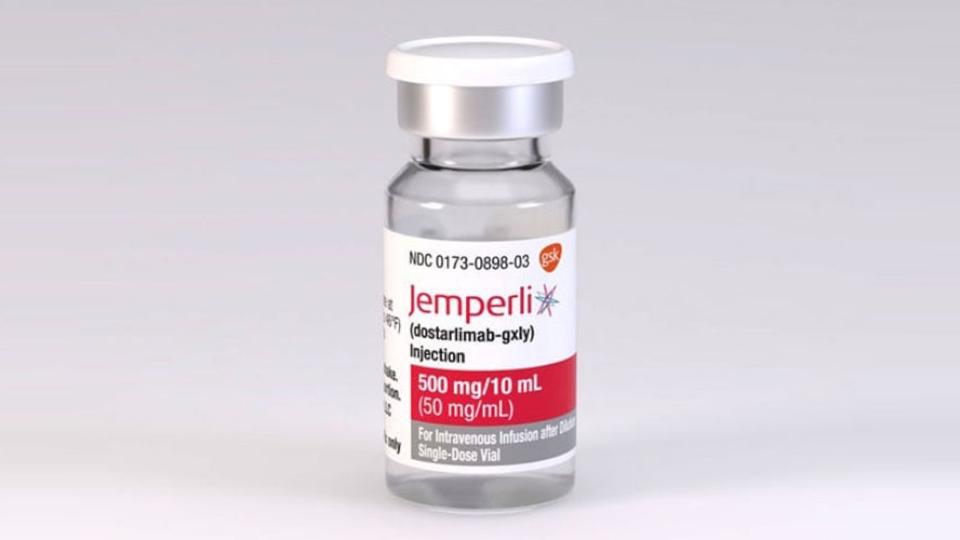OS data set up wider Jemperli use in endometrial cancer

GSK’s Jemperli has claimed an edge over its main rival in the endometrial cancer therapy market after showing improved overall survival in a broad patient population in the RUBY trial.
The results come from Part 1 of the study, comparing Jemperli (dostarlimab) with carboplatin-paclitaxel chemotherapy to placebo and chemo as a frontline treatment for advanced endometrial cancer, showing a 31% reduction in the risk of death with GSK’s PD-1 inhibitor.
There was a 16.4-month improvement in overall survival (OS) with Jemperli, which was seen in the overall population of the study, according to results presented at the Society of Gynaecologic Oncology annual meeting on women’s cancer over the weekend.
That’s important for GSK, as Jemperli is currently approved as a first-line therapy for use in endometrial cancer patients whose tumours have mismatch repair deficient (dMMR) or microsatellite instability-high (MSI-H) deficiency mutations, based on progression-free survival (PFS) data from RUBY Part 1.
With the OS data in hand, GSK is hoping to convince the FDA and other regulators to approve the use of Jemperli as a therapy for ‘all-comer’ endometrial cancer patients, which is a much larger patient population.
There are estimated to be around 60,000 new cases of this cancer diagnosed every year in the US, 15% to 20% of them at the advanced or metastatic stage, and of these 20% to 29% are dMMR or MSI-H.
In RUBY patients with mismatch repair proficient/microsatellite stable (MMRp/MSS) tumours, the OS benefit was smaller and has not reached statistical significance, but was a “clinically meaningful” 21% reduction in the risk of death, at 34 months versus 27 months for the control group.
The result consolidates Jemperli’s position in front-line endometrial cancer therapy as it faces potential competition from MSD’s Keytruda (pembrolizumab), which was also shown to extend PFS in dMMR/MSI-H patients when used first-line for advanced endometrial cancer in the NRG-GY018 trial. That study was not designed to track OS, however, and was unblinded after the PFS endpoint was reached. At the moment, Keytruda is approved for relapsed endometrial cancer only.
GSK has said approval of Jemperli with an all-comer indication could help it grow Jemperli’s sales above the $1 billion threshold. After a slow start, Jemperli has started to build momentum, with sales reaching £141 million ($180 million) last year – up from just £21 million in 2022 – and £60 million in the last quarter of 2023.
Adding Zejula lends a benefit
In RUBY Part 1, Jemperli is given alongside chemo initially, and then on its own as a maintenance therapy. A second cohort in the trial (Part 2) is looking at the combination of Jemperli and GSK’s PARP inhibitor Zejula (niraparib) as maintenance in MMRp/MSS tumours, comparing it to placebo.
In December, GSK revealed that Part 2 was also positive and it revealed the data at the SGO congress, including a 37% reduction in PFS – a six-month improvement – when Zejula was added to Jemperli.
The results could build confidence in Jemperli’s ability to have a positive impact in the MSS patient population as regulators consider the Part 1 data, with the bonus of potentially unlocking a maintenance indication as well.













